Limit 1, Additional implants are 30% off, remove these 2 lines, Zero-Down, 90mo, Credit Check Needed
In-House 50% Down, 6mo, No Credit Check. In House Financing
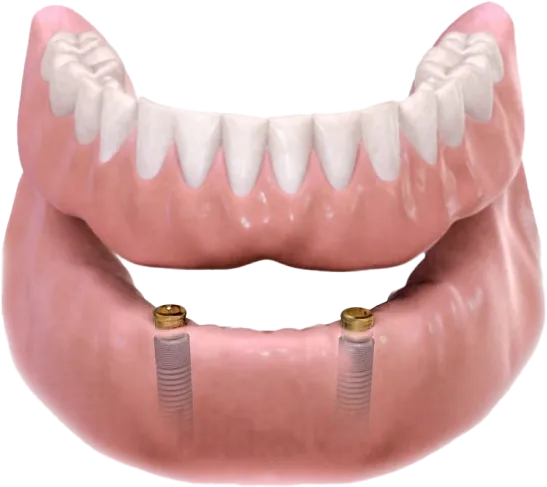
Cost-effective Teeth Replacement and Implant Denture.
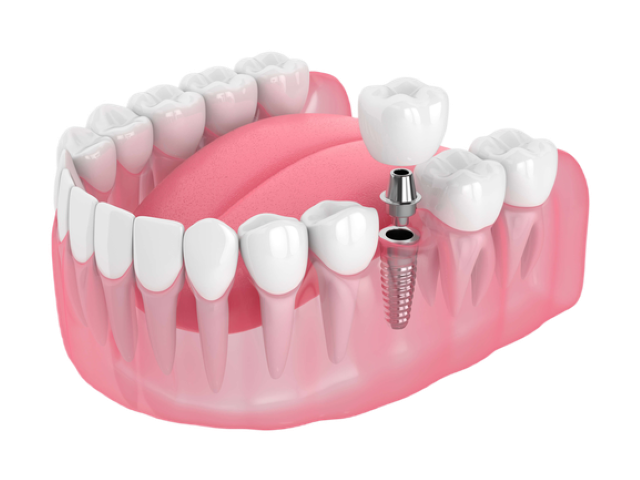
single implant for first offer
$1,499
- Complete Oral Evaluation
- Cone-Beam CT Scan
- 4 Implants per Arch
- Removable Provisional & Final Fixed Prosthesis
- Working with a team of experienced experts who can deliver a life-changing smile
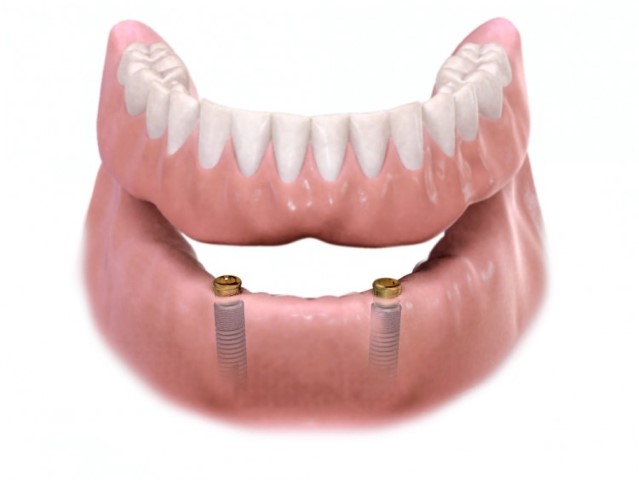
2 Implant Retained Overdenture (Lower)
$6,495
- Complete Oral Evaluation
- Cone-Beam CT Scan
- All-Extractions If Needed
- 4 Implants per Arch
- Fixed Acrylic New Teeth
- Working with a team of experienced experts who can deliver a life-changing smile
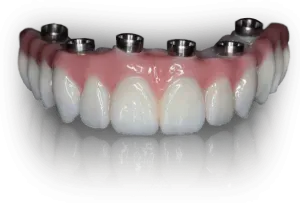
All On 4 with Fixed Zirconia Denture
$18,996
- Complete Oral Evaluation
- Cone-Beam CT Scan
- All-Extractions If Needed
- 4 Implants per Arch
- Fixed Zirconia New Teeth
- Working with a team of experienced experts who can deliver a life-changing smile
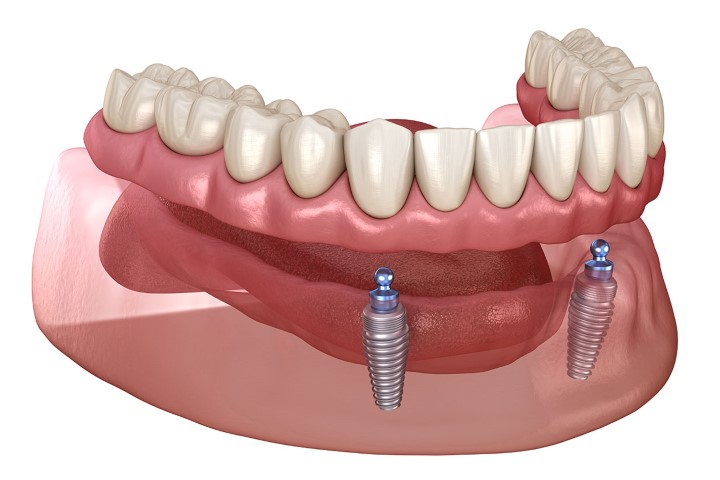
4 implant retained (add Upper in parenthesis)
$10,495
- Complete Oral Evaluation
- Cone-Beam CT Scan
- 4 Implants per Arch
- Removable Provisional & Final Fixed Prosthesis
- Working with a team of experienced experts who can deliver a life-changing smile
Cost-effective Teeth Replacement and Implant Denture.
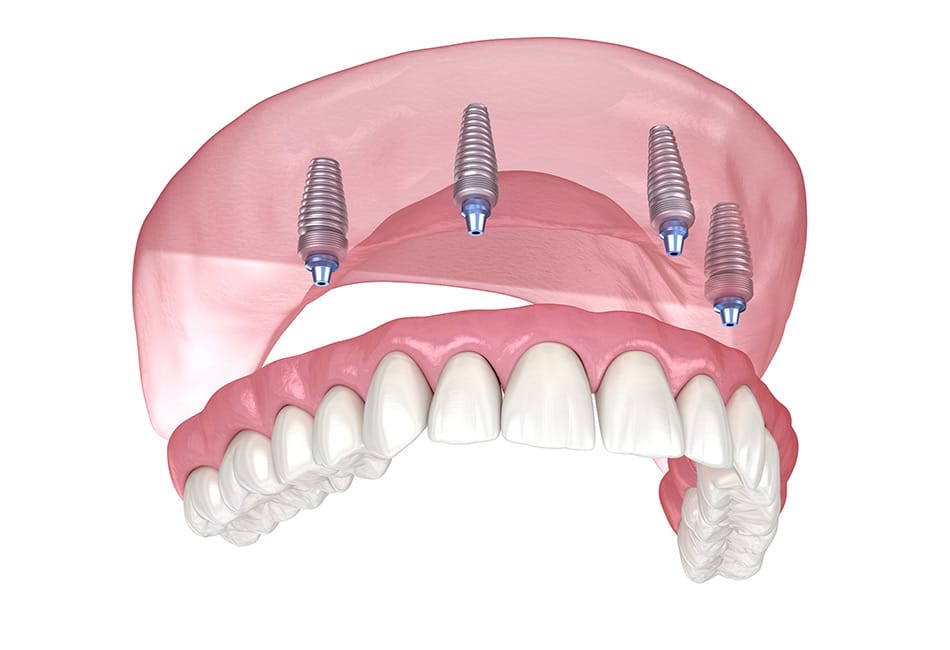
4 implant retained (add Upper in parenthesis)
$10,495
- Complete Oral Evaluation
- Cone-Beam CT Scan
- 4 Implants per Arch
- Removable Provisional & Final Fixed Prosthesis
- Working with a team of experienced experts who can deliver a life-changing smile
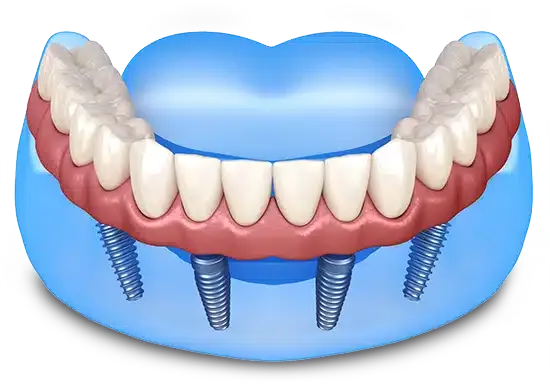
All On 4 with Fixed Acrylic Denture
$13,495
- Complete Oral Evaluation
- Cone-Beam CT Scan
- All-Extractions If Needed
- 4 Implants per Arch
- Fixed Acrylic New Teeth
- Working with a team of experienced experts who can deliver a life-changing smile

All On 4 with Fixed Zirconia Denture
$16,996
- Complete Oral Evaluation
- Cone-Beam CT Scan
- All-Extractions If Needed
- 4 Implants per Arch
- Fixed Zirconia New Teeth
- Working with a team of experienced experts who can deliver a life-changing smile
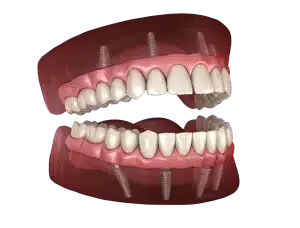
All On 4 with Fixed Zirconia Double Denture
$33,495
- Complete Oral Evaluation
- Cone-Beam CT Scan
- All-Extractions If Needed
- 4 Implants per Arch
- Fixed Zirconia New Teeth
- Working with a team of experienced experts who can deliver a life-changing smile
Denture Implants Cost
Price Options
Free Consultation
4 Implant Denture
$10,495
2 Implant Denture
$6,495
All ON 4 Dental Implants
$18,996
Conventional Denture
$1,995
Financing Details
- $0Down
- 48, 60, 90 month term
- High Approval
- Credit Required 600+
- Inquiry Won’t Affect Score
- Decision Within Seconds
Implant-Supported Implant Denture
Denture Implants Stratford CT
When it comes to replacing missing teeth, there are several options to consider, including dental implants, bridges, and dentures. It is important to discuss the benefits and drawbacks of each treatment with your periodontist.
While dental implants are often seen as the best choice for missing teeth due to their natural appearance, durability, and longevity, they can be costly, especially for patients needing multiple implants. On the other hand, dentures are a more affordable option but are often considered less convenient and comfortable due to the need for regular maintenance and cleaning, as well as the potential for irritation.
A newer technique for tooth replacement, known as “All-on-4 implants,” “All On 6 Implants,” and “Teeth Tomorrow,” combines the functionality of implants with the affordability of dentures. These branded denture supported implants use fewer implants than traditional methods, making the treatment more cost-effective and reducing recovery time.
Denture Implants Stratford CT
Implants made of titanium or zirconia are surgically placed in the jaw to act as artificial tooth roots. With implant-supported dentures, just a few implants can support up to 16 teeth. These restorations offer the same aesthetics and durability as traditional implants but at a lower cost.
All-on-4 implants strategically place four implants to support an entire arch. Two implants are placed in the front of the mouth and two in the back. The front implants are placed straight into the jaw, while the back implants are inserted at a 45-degree angle to avoid the need for a bone graft. This angled placement simplifies the procedure and reduces costs by eliminating the need for a bone graft in the back of the jaw.
Procedure Of Denture Implants
The process may vary depending on the specific brand of full arch implant-supported dentures you select. However, we will outline the step-by-step procedure for All-on-4s to provide an overview.
Step 1: Schedule an initial consultation with your dentist to determine if you are a suitable candidate for implant-supported dentures. Your dentist will use 3D imaging to assess your jaw bone structure and plan the aesthetic and functional aspects of your new teeth, such as crown length and bite placement.
Step 2: Your dentist will create a computer simulation of your mouth using 3D imaging to determine the precise placement of each implant. A surgical template may also be prepared to guide the placement.
Step 3: The next step involves the surgical insertion of the four implants, along with any necessary treatments like tooth extraction and bone shaping. The implants will be fitted with abutments and temporary teeth while the jaw bone heals and fuses with the implants. It is important to follow a soft food diet during this recovery period to protect the osseointegration process.
Step 4: Three months after the initial placement, the temporary teeth will be replaced with a permanent fixed denture. Recovery at this stage should be relatively quick and comfortable.
New Teeth in One Day
Implant-supported dentures offer the convenience of walking into your dental office needing a single or double arch and walking out with a fully reconstructed smile the same day. However, it’s important to note that while the implants and temporaries can be placed quickly, the full treatment process includes osseointegration, which can take several months. Make sure your dental office has 3D imaging technology and the necessary tools for same-day treatment.
Cost Of Implant Dentures
There are various factors that can impact the cost of same-day dentures, such as the dentist’s location and any additional treatments required like tooth extraction and bone shaping. While the initial cost may seem high, it is actually more cost-effective than replacing each tooth individually. Additionally, same-day dentures offer greater durability and longevity compared to traditional removable dentures.
Are You a Denture Implant Candidate?
If you need full mouth reconstruction or a complete arch replacement, All-on-4 implant-supported dentures may be the best option for you. Make an appointment for a consultation with a dentist who has experience in performing implant-supported procedures. If you currently use removable dentures, you may have experienced some bone loss that will need to be addressed first. Your dentist will assess the condition of your jaw bone to determine if implant-supported dentures are suitable for you.
Dr. Sran Stratford's Top Implant Dentist

Why All-on-4 Implants?
- Denture Permanently Fixed With Implants
- New teeth in as little as one day
- Minimally invasive procedure
- Less pain and swelling
- No more ill-fitting dentures
- Eliminates denture adhesives
- Teeth are secure like your natural teeth
- Fewer dental visits
- Immediate results
- Cost effective compared to traditional implants
- Life changing procedure
Before and After






3 Types Of Denture Implants
This treatment involves placing implants into your upper and/or lower jaw to support an overdenture that rests directly on your gums. The removable overdenture is secured to the implants using retentive attachments. Implant-retained tissue supported dentures are considered the standard of care for fully edentulous patients.
Cost Of Full Mouth Dental Implants
This treatment involves placing implants into your upper and/or lower jaw to support an overdenture that rests directly on your gums. The removable overdenture is secured to the implants using retentive attachments. Implant-retained tissue supported dentures are considered the standard of care for fully edentulous patients.
Our Denture Implants prices vary based on the type. Please refer to the price list at the top of the page for more information.
Our prices for Implant Supported dentures vary depending on the type. For more information, please refer to the price list at the top of the page.
- Severe toothache
- Accident related injury
- Broken tooth, chipped or knocked out tooth
- Tooth or gum infection
